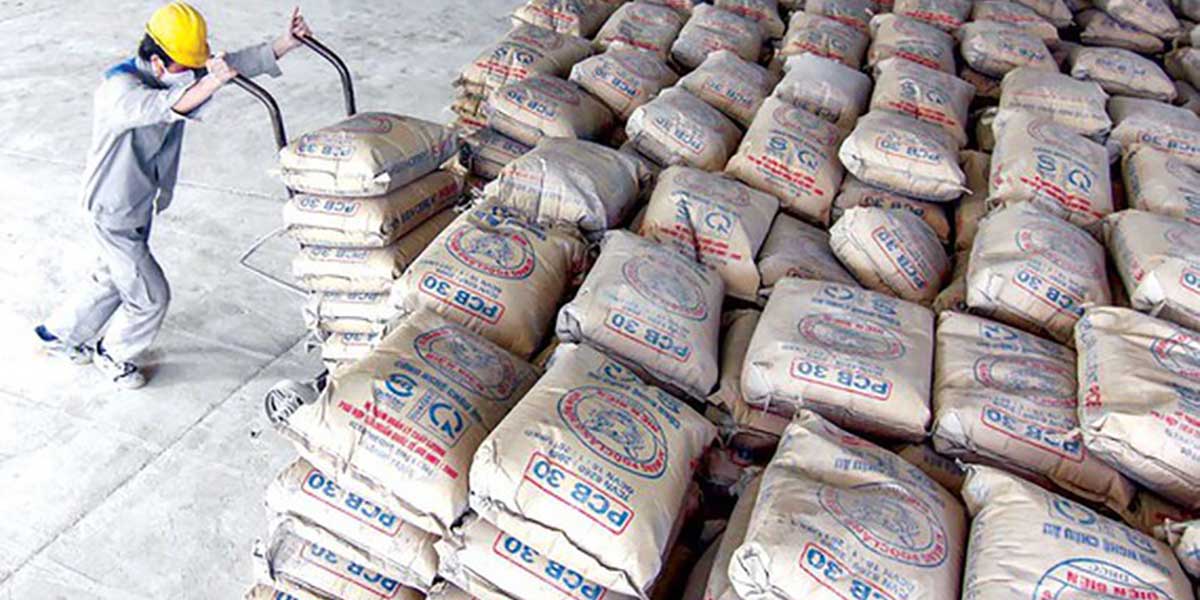
By Joseph B.A. Marzan
Despite the restrictions imposed amid the coronavirus disease 2019 (COVID-19) pandemic in the past two years, including on the entry of international products, cement “dumping” by other countries onto the Philippines was unstoppable, according to representatives of the cement manufacturing industry.
The Cement Manufacturers Association of the Philippines cited Bureau of Customs data, indicating that Vietnamese (VN) cement exports grew per year to 6.466 million metric tons (MMT) in 2021, from 5.396 MMT in 2020 and 2.486 MMT in 2017.
This represented 91 percent of total cement exports in 2021 compared to 61 percent in 2017 and almost zero in 2013.
Other countries’ input to these exports visibly shrank compared to that of Vietnam to only 0.641 MMT in 2021, from 0.850 in 2020 and 1.778 MMT in 2017.
Cement exports from overseas did increase overall from 4.264 MMT in 2017 to 7.107 in 2021.
The group of cement manufacturers alleged that the “continuing rise in volume of certain exported VN cement to the PH market at dumped prices puts at risk our domestic industry and adversely impacts our country’s economic recovery.”
CeMAP executive director Cirilo Pestaño told the Tariff Commission last Wednesday, June 1, that the local industry had been “suffering” due to the dumping of imported cement, mostly from Vietnam.
Pestaño also used the opportunity to raise calls for clearer, stricter, and more effective anti-dumping measures against imports of Ordinary Portland Cement Type 1 and Blended Type 1P from our South East Asian neighbor.
“The continuing rise in volume of certain exported Vietnam cement to the Philippine market at dumped prices puts at risk our domestic industry and adversely impacts our country’s economic recovery efforts,” Pestaño said during the hearing.
He added that the dumping practice “undermines the domestic cement manufacturing industry’s capability to contribute to and catalyze inclusive growth through job creation, tax revenue generation, improving the balance of payments, utilization of local natural resources, and additional investments.”
Pestaño stressed that the Philippines itself remains to have a stable and secure supply of cement that can fill domestic needs and demand.
He added that the local cement manufacturing industry’s capacity increased to 46.6 MMT in 2021, enough to respond to the “relatively flat” demand which decreased to 28.7 MMT in 2021 from 31.8 MMT. The capacity is also seen to increase by an additional 19.5 MMT between 2022 to 2025.
But he likewise warned that the threat of bigger imports dumped from there are still present due to the fact that its 120 MMT per annum capacity forms only 50 percent of their domestic demand from 2019 to 2021.
The Department of Trade and Industry (DTI) in November 2021 issued provisional anti-dumping duty on specific Portland cements from Vietnam with a range of US$1.02 to US$10.53 per metric ton.
This was after CeMAP members Holcim Philippines, Republic Cement & Building Materials, Inc., Solid Cement Corporation, and Apo Cement Corporation filed an anti-dumping application with the DTI.
The trade department’s investigation into the applications covered import transactions from July 2019 to December 2020, while also considering relevant information from 2017 to June 2020.
The application was supported by fellow manufacturers and non-CeMAP members Eagle Cement Corporation and Northern Cement Corporation.
Preliminary findings of the investigation showed that 16 Type 1 and 12 Type 1P cement exporters, all from Vietnam, practiced cement dumping in the Philippines which affected the domestic cement industry’s operations.


















